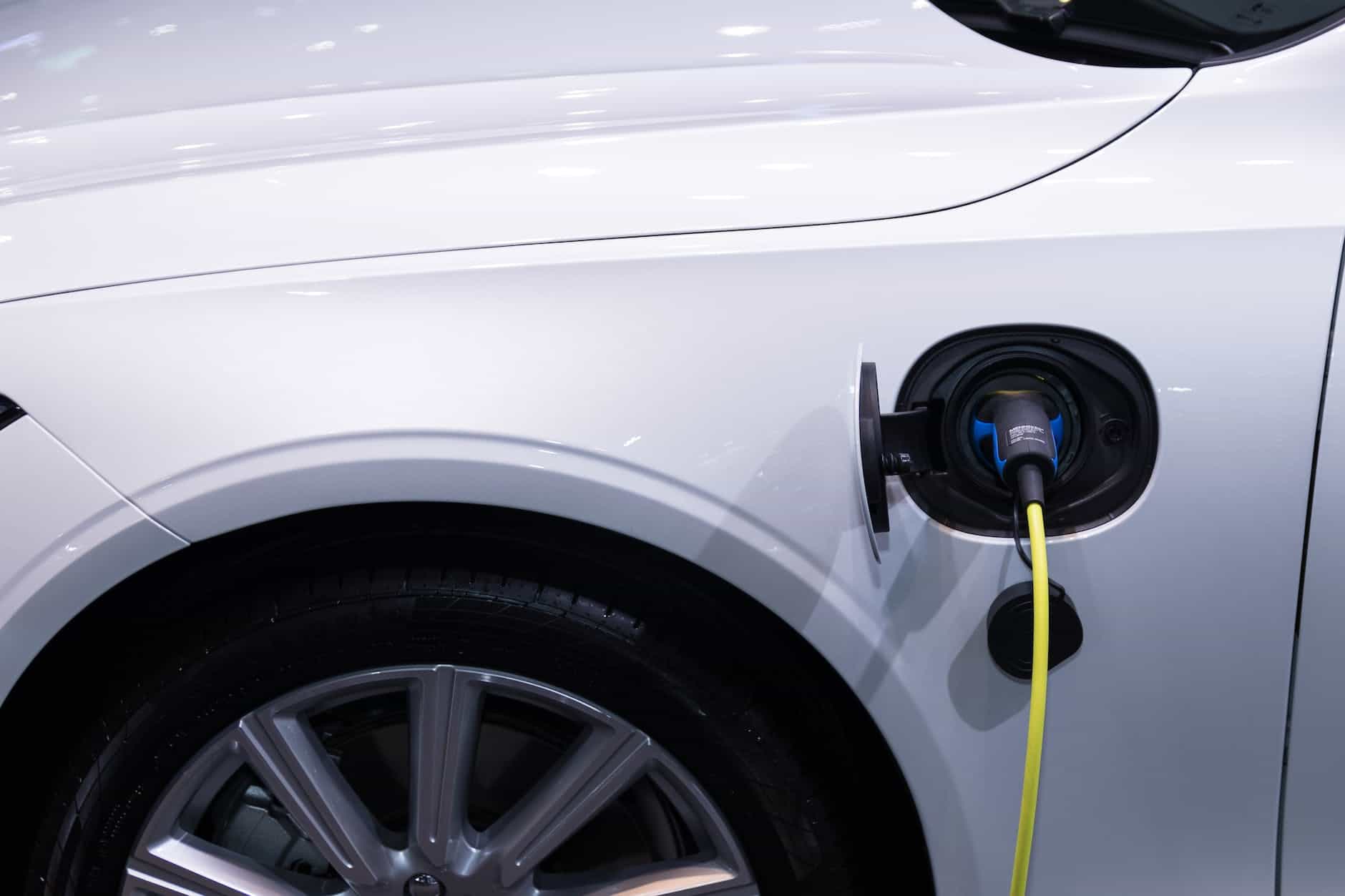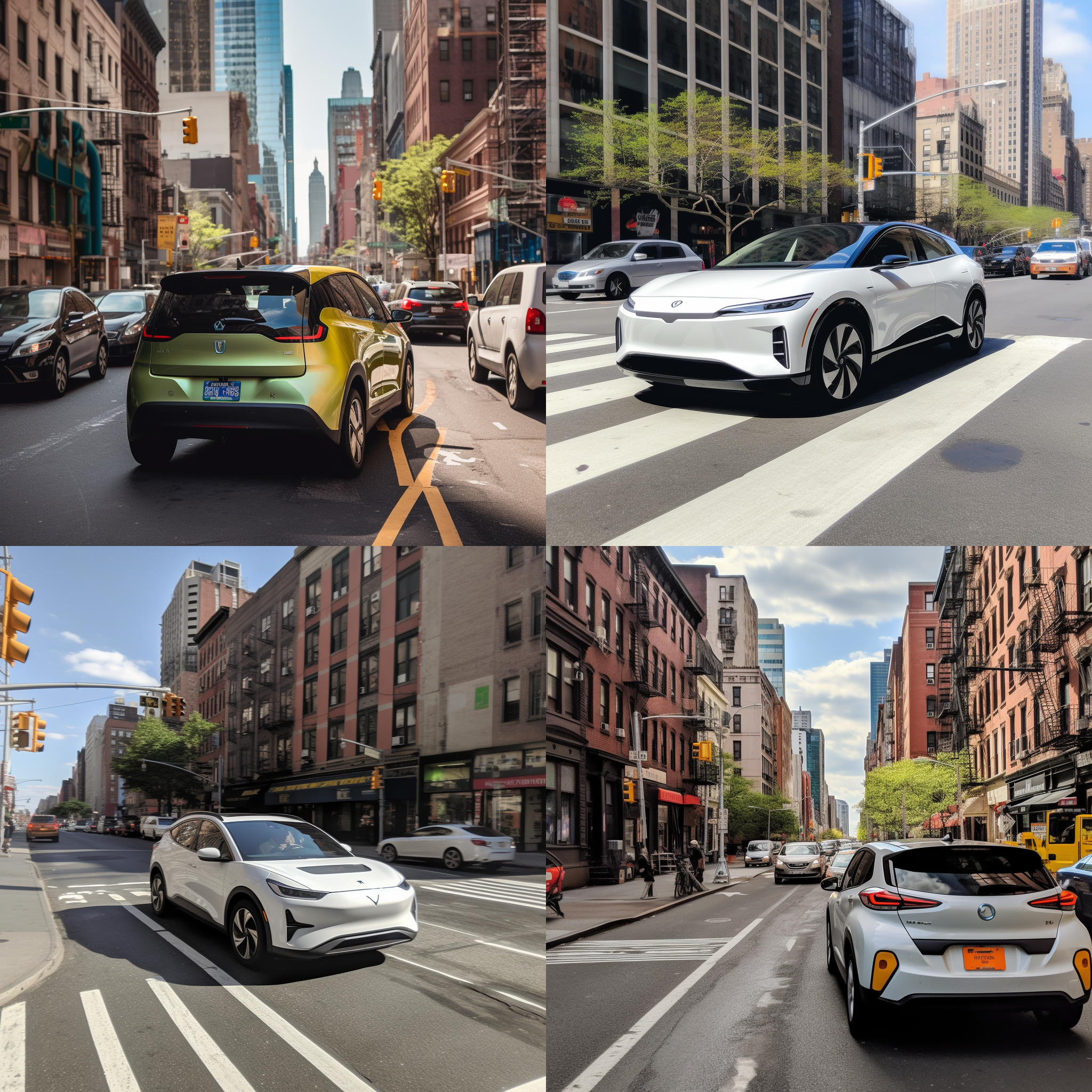Are you in the market for an electric vehicle (EV)? As EVs become more popular, choosing the right one for your specific needs can be challenging. What works for one individual might not work for another, so it’s crucial to conduct thorough research and take all aspects into account before making a buying decision.
In this article, I’m going to help guide you through the process of selecting the perfect EV for you.
From battery size and range to charging options and features, there are many different aspects to take into account when picking out an EV. It’s also worth noting that certain models come with unique incentives such as tax credits or discounts on charging solutions.
This means that even if two vehicles look similar in specs, their total cost could vary greatly depending on these added benefits.
At the end of this article, you will have all the information necessary to choose the ideal electric car for your lifestyle. Let’s get started!
Definition Of An Electric Vehicle
An electric vehicle (EV) is a battery-powered vehicle that runs on electricity. It doesn’t use gasoline or diesel fuel, and instead relies on power stored in a battery to run its motor. EVs come in many shapes and sizes, from small cars to large vans and trucks.
They can be powered by either AC or DC current. Depending on the type of EV you choose, the range of how far it can travel varies greatly—from as little as 30 miles up to over 300 miles per charge.
When shopping for an EV, there are several factors to consider such as size, price, charging times, available features, and most importantly the range of distance your vehicle will get before needing another charge.
The more expensive models tend to have longer ranges but may not fit into your budget if you’re looking for something more economical. There are also government incentives available for some buyers which could help offset costs when purchasing an EV.
So if you’re considering buying an electric car there are plenty of options out there – from luxury vehicles with top-of-the-line technology to smaller hatchbacks with basic amenities that provide reliable transportation at a lower cost.
With all these choices available it’s important to understand what exactly makes an electric car different so that you can find one that best suits your needs and lifestyle. Now let’s explore the various types of electric vehicles currently on the market today.
Types Of Electric Vehicles
When choosing an electric vehicle (EV) for your needs, it’s important to know the different types on offer. EVs come in a variety of forms including sedans, SUVs, trucks, vans, and motorcycles.
Sedan-style EVs are great for daily commuters who want to reduce their carbon footprint without sacrificing performance or convenience. They generally have more range than other EV models and provide a smooth ride experience with comfortable seating options.
SUV style EVs are perfect for those looking to go off-road or handle a greater load capacity. They usually feature higher ground clearance and four-wheel drive capabilities that make them ideal for tackling rough terrain. Plus they typically have larger battery packs so you can travel farther distances between charges.
Trucks and van style EVs are excellent choices for businesses as they often come loaded with features like cargo space and payload capacities that accommodate heavy loads easily.
Meanwhile, if you’re looking to get around town quickly then consider one of the many available motorcycle-style EVs which provide fast acceleration while still being eco-friendly.
No matter what type of EV you decide is best suited to your needs, cost considerations should also be taken into account when making the final decision…
Cost Considerations
How much are you willing to spend on an electric vehicle? This is a critical question when choosing the best one for your needs. Electric vehicles come at various price points, and it’s important to consider cost of ownership as well as upfront costs.
When comparing different models, look at both the sticker price and any incentives or discounts that may be available in your area. Additionally, compare charging costs and projected fuel savings over time.
It’s also worth considering whether you intend to lease or buy the car outright. Leasing can often provide lower monthly payments with fewer upfront costs; however, many drivers prefer owning their electric vehicle outright so they don’t have to worry about mileage restrictions or other factors associated with leasing agreements.
When shopping for an electric vehicle, it pays to do your research ahead of time – not only into specific models but also into how much you’ll need to pay in terms of maintenance and running costs each year.
Doing a thorough cost comparison between different makes and models will help ensure you’re getting the most bang for your buck when it comes to selecting the best electric vehicle for your needs. With this knowledge in hand, you can make an informed decision that meets both your budget requirements and lifestyle preferences.
To get a full picture of what driving an electric vehicle entails, it’s essential to explore range and recharging options next.
Range And Recharging Options
Now that the cost considerations of an electric vehicle have been discussed, it’s time to consider range and recharging options. It is essential for drivers to understand how far their new ride can take them and where they can recharge when running low on battery power.
When looking at electric vehicles, motorists should pay attention to the range option available. Different models offer different ranges from as little as 40 miles per charge up to more than 300 miles per charge. Depending on your needs, you may want a model with longer or shorter range capabilities.
Consideration must also be given to the type of terrain you’ll be driving in – hills will use up more energy than flat surfaces.
In addition to researching the range options for each car, drivers must look into charging and recharging availability.
Most cars come with basic wall plugs so that you can plug in overnight but if you’re out and about there are now public charging stations located all around the country which allow users to quickly top up their batteries while they grab some food or run errands.
Some companies such as Tesla even offer mobile apps so that drivers know exactly where they need to go to find a station nearby.
Having considered both range and recharging options, it’s important for buyers to now focus on vehicle size and passenger capacity before making a purchase decision.
Vehicle Size And Passenger Capacity
When it comes to choosing an electric vehicle, size and passenger capacity are important factors. EV’s come in all shapes and sizes, but you’ll want to consider how much room you need inside the cabin for passengers or cargo. You’ll also want to look at the exterior dimensions of your prospective EV – especially when considering parking or navigating tight city streets.
EVs range from tiny two-seaters like the Renault Twizy to massive SUVs like the Tesla Model X. Evaluate which size is right based on how many people need comfortable seating and luggage space.
Note that some EVs may have more interior space than their exterior measurements suggest due to clever design features such as folding rear seats and low floorboards.
Consider not only the number of passengers who will be riding with you but also what kind of trips you intend to take regularly – long-distance journeys might require a bigger car with a larger battery pack so you can go further between charges. Weigh up these considerations along with others, such as budget, before moving on to thinking about electric vehicle battery performance and maintenance…
Battery Performance And Maintenance
Now that you have an idea of the size and passenger capacity of your preferred electric vehicle, it’s time to move on to battery performance and maintenance. This is a key factor to consider when selecting the right car for your needs.
The first important consideration is battery life: how long will it take your electric vehicle’s battery to run out of power? This depends heavily on the output of its motor as well as usage patterns such as driving speed, terrain, and climate conditions.
If you plan to use your EV in extreme weather or mountainous areas, make sure the model has sufficient power output and battery capacity.
It’s also essential to know charging times and regular maintenance requirements for EVs.
Some vehicles may require longer charge cycles than others, so check this before making a purchase decision. Additionally, keep in mind that there are certain preventative measures you should take with any electric car — from regularly checking coolant levels and brake fluid to ensuring all components are functioning properly — which could affect overall performance over time if neglected.
In order to get the most out of your chosen electric vehicle, make sure you understand these elements surrounding battery performance and maintenance beforehand.
Doing so can save you money down the line by avoiding expensive repairs or replacements due to poor upkeep. It can also help ensure that your car runs smoothly for years to come! Now let’s look at safety features associated with various models of electric cars available today.
Safety Features
When it comes to safety features, electric vehicles offer a number of advantages. From advanced crash tests and ratings to enhanced protection sensors and systems, an electric vehicle can provide owners with the peace of mind they need behind the wheel. Let’s take a look at some of the key benefits that come from investing in an EV:
- Electric Vehicle Crash Tests & Ratings: Many major auto manufacturers now feature their own comprehensive crash testing programs for EVs. These tests often go beyond traditional standards, evaluating everything from occupant protection to side impact performance. Additionally, many EV models have achieved top safety ratings from leading organizations like IIHS or NHTSA.
- Enhanced Protection Systems: Most modern electric cars are fitted with all sorts of innovative protection systems designed to keep occupants safe during accidents. For example, electronic stability control (ESC) helps you stay on track if you start skidding while anti-lock brakes prevent wheels from locking up when braking suddenly. Additionally, airbags are standard equipment in most EVs these days as well.
- Advanced Driver Assistance Technologies: Thanks to advancements in autonomous driving technologies, electric vehicles can now be equipped with features such as lane keeping assist and adaptive cruise control which help drivers maintain situational awareness on the road. Other driver assistance packages may include automated emergency braking and blind spot monitoring among other things.
- Electric Vehicle: Finally, some EV models also feature sensors that monitor your surroundings while additional alerts will let you know when there is something blocking your path ahead or coming up from behind. All this technology provides added peace of mind whether you’re commuting to work or taking a leisurely drive around town!
Ultimately, choosing the right electric vehicle for your needs should involve more than just looking at its list of comfort and convenience features – safety is paramount too!
With so many great options available today that offer industry-leading crash test results and state-of-the-art protective measures, finding an EV model that meets both your lifestyle requirements and safety standards has never been easier!
Comfort And Convenience Features
Let’s face it, when you’re looking for an electric vehicle, comfort and convenience features are just as important as range and charging. After all, what good is the longest range if your car doesn’t have heated seats to keep you warm during those cold winter months? Or climate control so that you can be comfortable in any season?
These days, most EVs come with a variety of features such as keyless entry, cruise control, rearview cameras and more.
These make driving easier and safer while giving you peace of mind. When shopping around for electric vehicles, take time to consider which features matter most to you. That way, when the time comes to make your purchase decision, you won’t be disappointed by what isn’t included.
Don’t forget about warranties and service agreements when selecting an EV for its comfort and convenience features.
As some luxury models offer these benefits at little or no cost to buyers, they can add significant value to your overall experience – making sure that not only are you comfortable but also that your investment remains protected long term.
Warranty And Service Agreements
When shopping for an electric vehicle, it’s important to consider the warranty and service agreements that accompany it. Each manufacturer provides different coverage levels and benefits with their warranties. Knowing what you’re getting is essential in order to make sure your EV runs smoothly over its lifetime.
| Manufacturer | Coverage Level | Benefits |
|---|---|---|
| Tesla | 8 years/160k | Free annual inspections & software updates |
| Nissan | 5 years/60k | Parts & labor protection for repairs |
| BMW | 4 years/50k | 24/7 roadside assistance |
It’s worth doing research into these plans before committing to a purchase as they can offer valuable peace of mind when buying a new car.
Repairing or replacing components outside of any included coverages can be expensive, so having some plan in place is highly recommended. Additionally, look out for special deals from manufacturers like free charging options for certain EVs – this could save you money over time. With all this information on hand, you’ll have everything you need to decide which electric vehicle best suits your needs.
Test Driving And Purchasing Advice
Once you have determined the warranty and service agreements that best suit your needs, it’s time to move on to test driving and purchasing advice.
When it comes to electric vehicles, there are a few essential things to consider before purchasing. Test-driving is one of the most important steps in selecting an EV since it can help you decide if the car fits your lifestyle.
To get the most out of test driving your potential vehicle:
- Bring someone along for a second opinion
- Take note of how quiet the ride is
- Make sure all of your questions about features and performance are answered satisfactorily
When buying a new electric vehicle, here are some tips to keep in mind:
- Get pre-approved financing from your credit union or bank prior to visiting dealerships
- Consider any additional fees associated with registration, taxes, title transfer, etc.
- Look into incentives such as rebates or other offers available at certain dealerships
In addition to researching prices and features, take into account how much range you need in order to comfortably commute or complete daily errands.
Evaluate charging options so you can determine what type of charger will work best for you based on location and budget. With these pieces of advice in hand, you’ll be ready to select an electric vehicle that meets all of your requirements – both practical and financial!
Frequently Asked Questions
What Is The Average Lifespan Of An Electric Vehicle?
When it comes to electric vehicles, one of the most important questions is: How long will they last? The average lifespan of an EV can vary depending on factors such as maintenance, age and usage. To get a better understanding of how long your electric car might last, here are some key considerations to take into account regarding EV longevity:
- Battery Life: Many experts agree that an electric vehicle’s battery should last 5-8 years with normal use. After this time period, you may need to replace or repair parts of the battery. However, if you maintain your battery regularly and keep track of its performance over time, it could potentially last longer than 8 years.
- Age Of Vehicle: Generally speaking, newer models tend to have more advanced components and improved technology that helps make them more reliable for a longer period of time. That said, older EVs still offer great value and reliability even after many years on the road; be sure to check all safety features before purchasing any used model.
- Maintenance & Care: Taking good care of an EV is absolutely essential for extending its life expectancy. Regularly checking things like tire pressure, oil levels, and other fluids will help ensure optimal performance over a longer period of time – so don’t skimp out when it comes to maintenance!
- Usage Habits: If you’re planning on using your EV for regular daily commutes or longer trips, consider investing in a high-end model with strong range capabilities to avoid having to recharge too often during extended drives. Additionally, driving habits also play a role in determining how long your vehicle will last – try not to accelerate too quickly (or brake too hard!) if possible!
No matter which type of electric vehicle you buy or how much research you do beforehand, there’s no way to guarantee exactly how long yours will last until you actually experience it first hand. Keeping these tips in mind when selecting an EV should give you some assurance that your chosen ride won’t let you down anytime soon!
How Much Money Can I Save By Driving An Electric Vehicle?
When it comes to electric vehicles, one of the advantages that many drivers are interested in is the potential for cost savings. How much money can you save by driving an electric car? The answer depends on a variety of factors, including your location and how often you drive.
Electric cars offer numerous benefits when compared to traditional gasoline-powered models. Besides being cheaper to run, they also produce fewer emissions and less noise pollution than their gas counterparts.
Additionally, many states provide incentives such as tax credits or rebates when purchasing an electric vehicle. These financial benefits can help offset some of the costs of investing in an EV.
The amount of money saved with an electric car will vary depending on where you live and how far you usually travel during each trip.
Generally speaking. However, those who use their EVs daily tend to see greater savings over time due to lower energy consumption rates than those who only uses theirs occasionally. It’s important to consider these factors before making a purchase so that you get the most value out of your investment.
Before buying an electric vehicle, make sure you do research into what type works best for your needs and budget. Compare prices between different makes and models and look into any available incentives offered by state governments or other organizations—these could potentially add up to big savings down the road!
Are Electric Vehicles More Environmentally Friendly Than Gas-Powered Vehicles?
Navigating the automotive world can be a daunting task; especially when it comes to choosing an electric vehicle (EV). Are EVs more environmentally friendly than gas-powered vehicles? Let’s take a look at how EV emissions, environmental impact of EVs, gas powered cars pollution and EV energy efficiency compare.
Number one: Electric Vehicle Emissions. When it comes to emissions, EVs come out on top by far. They are much better for the environment with no tailpipe emission than their combustion engine counterparts. Additionally, when considering battery life cycles, studies have shown that in terms of global warming potential per kilometer driven, electric vehicles produce only about half as many greenhouse gases compared to gasoline or diesel equivalents.
Second: Environmental Impact of EVs. The environmental benefits don’t end there. As opposed to traditional fuel sources such as coal or nuclear power plants used to generate electricity for conventional cars, the majority of electricity used to charge EVs is generated from renewable resources like solar and wind energy—minimizing its ecological footprint even further.
Thirdly: Gas Powered Cars Pollution vs EV Energy Efficiency. While most people think about air quality improvement when comparing electric versus gas-powered vehicles, another important factor is energy efficiency which improves both the economic outlook and overall emissions reduction as well. In terms of miles traveled for each unit of consumed energy, electric vehicles outperform internal combustion engines by up to five times!
This means less money spent on fuel costs while still being able to travel long distances without stopping frequently and recharging your car’s battery.
To summarize, we can see that electric vehicles offer several advantages over their fossil fueled cousins in terms of environmental friendliness and cost savings due in part to their low maintenance requirements and greater efficiency levels.
Without any doubt this makes them a great choice if you’re looking for a cleaner way to get around town or even across country with minimal expense and maximum sustainability!
Is It Possible To Use An Electric Vehicle For Long Distance Travel?
It’s a question that many people ask: is it possible to use an electric vehicle for long-distance travel? The answer depends on the type of car, its range and how often you’ll be using it.
Electric vehicles (EVs) have come a long way in recent years and their range has increased significantly. If your travels involve driving around town or short trips within 100 miles, then an EV could work well for you. However, if your journey involves longer distances, then there are some important points to consider before buying an electric car for this purpose.
The main factor when deciding whether you can use an electric vehicle for long distance travel is its range per charge.
Most EVs nowadays have enough power to cover over 200 miles on one full battery charge, but they vary depending on their make and model. It’s also worth considering how often you plan on taking long journeys with your electric car – if it’s only occasionally, then renting a gasoline-powered car may prove more cost-effective than investing in one yourself.
Moreover, charging infrastructure should be taken into account as not all roads will offer access to public chargers along the way; having access to fast chargers at regular intervals is essential if traveling any significant distance in an electric vehicle.
In summary, using an electric vehicle for long-distance travel is feasible depending upon several factors such as the range of the car, frequency of trips, and availability of charging stations en route. Researching these points thoroughly prior to purchasing will ensure that you choose the best option suited to your needs.
What Kind Of Tax Incentives Are Available For Electric Vehicle Owners?
Buying an electric car can be a smart move, especially when it comes to tax incentives. It’s like opening up the door to extra savings, and that’s something every driver needs more of! EV owners have access to various tax credits, breaks, rebates and other incentives designed to make these vehicles more affordable.
So what kind of tax benefits are available for those who choose to go electric?
When it comes to federal taxes alone, there is currently a $2,500-$7,500 credit offered depending on battery capacity. This incentive applies no matter how much you paid for your vehicle or where it was purchased. States also offer additional tax opportunities such as sales tax exemptions and special registration fees. In some instances, you could even get a rebate after purchasing an eligible electric vehicle.
Electric cars come with plenty of perks beyond just their environmental friendliness. From reduced running costs to increased convenience – not having to worry about filling up at gas stations – they’re already attractive options for many drivers. But the potential savings from all these different kinds of tax incentives should give green-minded folks, yet another reason why going electric makes sense in so many ways.
Conclusion
In conclusion, electric vehicles are becoming increasingly popular due to their affordability and environmental friendliness. Owning an EV can save you money in the long run thanks to reduced fuel costs and government tax incentives. Additionally, EVs have a surprisingly long lifespan of around 8-10 years when properly maintained.
However, before making the switch to an electric vehicle it’s important to weigh up your needs. If you plan on taking frequent long-distance trips then an EV may not be suitable for you as battery range is still limited compared to gas powered cars. Nevertheless, if you primarily drive locally then an EV could be just what you need to get from A to B with minimal fuss – plus there’s no denying that they look pretty snazzy too!
Ultimately, by doing your research and understanding the financial and environmental implications of owning an EV, you’ll be able ensure that you choose the best electric vehicle for your own specific needs. There’s never been a better time than now to make the leap into electrification – so go ahead and take a step towards a greener future today!









